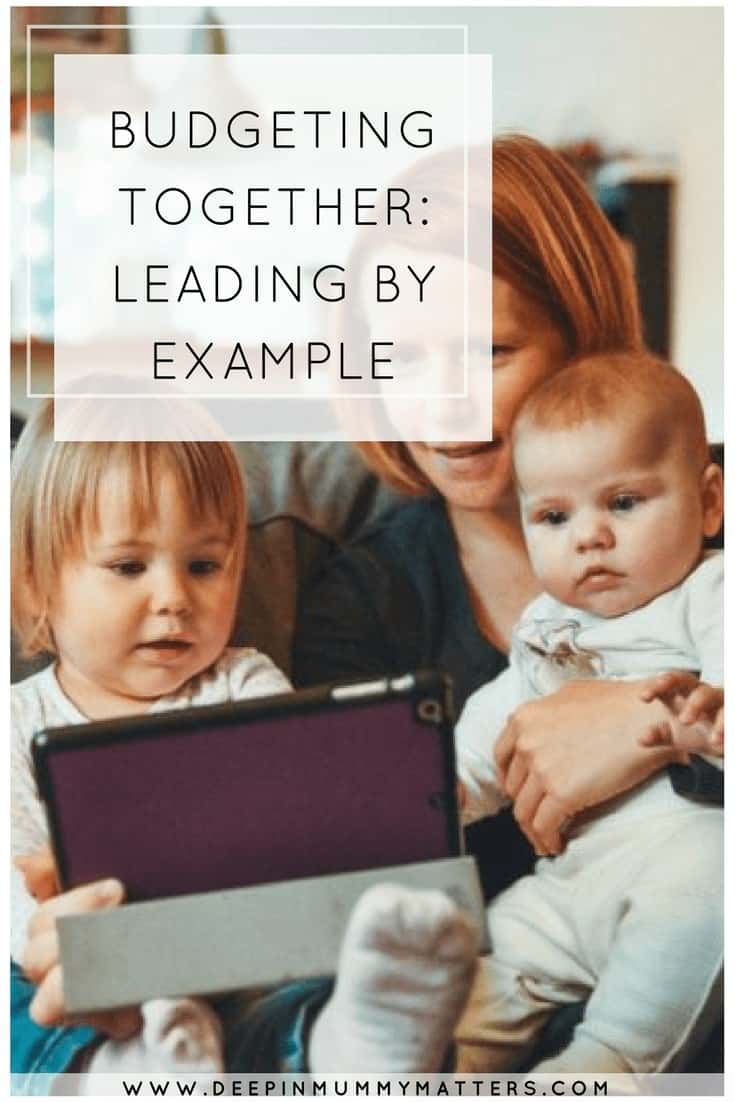It is incredibly important to start educating your children early about budgeting and wise spending at an early age. Laurie Blank, author of “How To Teach Your Kids About Money,” put it best when she told Modest Money, “if you don’t teach your kids an effective way to manage money, somebody else will teach them about money, and it will likely be to spend it rather than saving it.” She added, “good money management education doesn’t just ‘happen.’”
Kids aren’t really taught in school to manage their money wisely like they are taught how to do the math, science, and writing. That means that teaching kids about money fall to you. It is essential they learn these skills at home and that these skills are given as much as showering, eating, and other day-to-day chores and activities.
The Purpose of Being In It Together

There are two extremes you want to avoid when teaching your children about money. There is extreme A: where parents spoil their kids rotten and make sure they never have to pay for anything themselves, and extreme B: where parents are very bad with money themselves and don’t teach their kids well because they themselves are playing catch up. The problem is, however, children won’t learn the practical applications of good money management without someone showing them how to do it.
This is where the age-old addendum of “leading by example” comes into play. If your kids see you being wise with your money, it may take them fewer mistakes and bad experiences in the real world to get on track. Everyone screws up here and there, but hey, the better examples your kids have of people who are good with their money, the more concrete their own personal goals can be. This is also great multitasking — you can be a full-time mom and practice managing your money wisely!
However, you can’t just lead by example — you need to make sure they are living such practices out themselves. Making children work for any allowances, having them pay for their own fun and responsibilities at a reasonable age, and ensuring they get a job when coming of age are all ways to ensure they learn to manage their money. At a younger age, it may be wise to make sure they put a portion of any money they get from you into savings. This may come from allowances, gifts and occasions, or the like.
Drawing Your Parallels

As you lead your child by example, you can take this time to relate their financial difficulties, activities, and questions to your own. One way to do this may be to enact the same financial habits you’re trying to instil with them, on a day-to-day level.
Maybe you’re considering a big purchase, and your child is considering saving for and purchasing something of large value to them as well. You could potentially work out a budgeting plan that both of you are following, giving a certain percentage or choosing days to go to the bank and deposit savings. This might also be a good opportunity to set up a savings account for your child. There are all kinds of savings accounts to choose from, and even some meant specifically for children. Maybe you could both have a certain amount you spend on the fun during the weekends, and keep each other accountable in that regard.
Showing your child you’re in this together may help them feel like this is less of a “lesson” for them and more of an experience or life skill they are learning. Rather than feeling like “my parents think I’m going to be bad with my money,” they can feel like “my parents trust me with my money and they want me to keep them accountable as well.”
Creating Educational Lessons

You don’t only have to teach by example. You can use these opportunities to start important conversations about finances as well. For instance, taxes. You are self-employed — taxes work differently for you, especially in the UK. Once a teenager starts working a real job, they will have to deal with the responsibility of paying taxes. This could be a time to teach them about the different kind of tax write-offs they can take advantage of, different laws related to taxation that will affect them in current jobs, and budgeting for in the future.
This is prime time to teach them about wage laws, types of banking accounts, credit, and other things about the financial world that directly affect them.
How did you teach your children about managing their money? What worked and what didn’t? Why? Let us know in the comments below!


Nice Info TorOption scam made us believe that this options broker is not a legitimate one.Be careful of toroption scam.